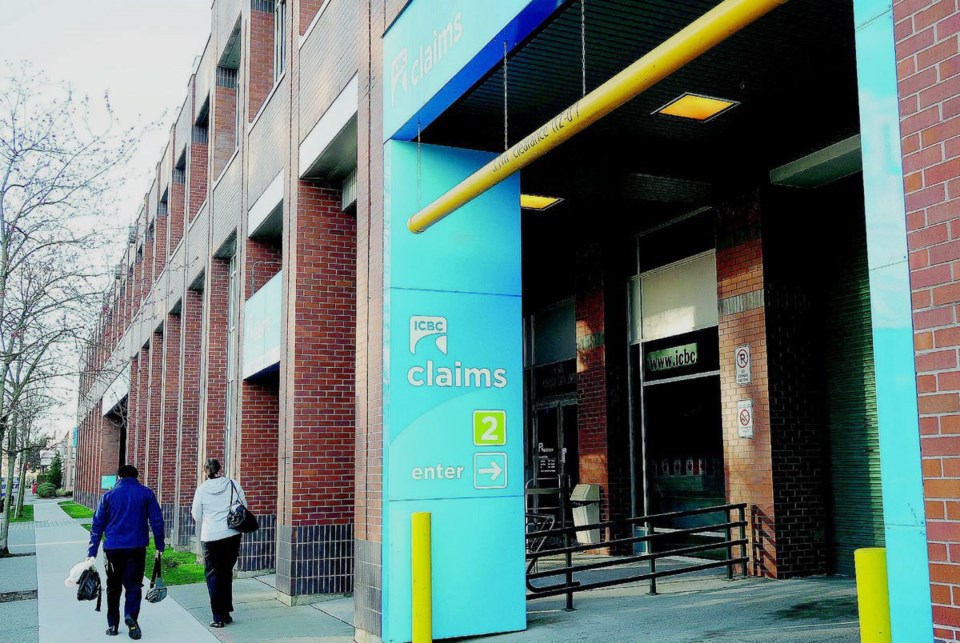The B.C. government is portraying the impact of changes to ICBC’s premiums as positive to two-thirds of B.C. drivers. But it used a contrived model based only on the first year. Rates are still going to go up, the distribution of the increase is just going to be different.
Inexperienced drivers, bad drivers and those who cause even one crash will pay more and get fewer breaks.
People with multiple crashes on their record will be the hardest hit. Penalties based on points and driver-risk premiums — separate from basic insurance — will skyrocket 40 per cent over the next two years.
Seniors who are found at fault for more than one crash could stand to lose their special discount based on age along with their safe-driving discount.
The new rate design is the latest in a series of measures taken to deal with ICBC’s financial crisis. It stands to post a loss of more than $1 billion this year, based mostly on the record number of crashes on B.C. roads.
The steps already taken included curtailing legal costs by shunting claims out of the courts, capping pain-and-suffering awards, and enhancing red-light cameras and other traffic-safety measures.
The new premium system has to be approved by the B.C. Utilities Commission over the next few months before it takes effect next September. It will be phased in over several years.
Changes include:
• Basic insurance for inexperienced drivers will be increased to better reflect their risk.
• At-fault crashes will have a larger impact on the premium a driver pays.
• Rate classes and territories will be updated to reflect changes in traffic density and population growth.
• The time period of driving history reviewed will be increased from to 40 years from nine, which would reward safe, older drivers.
But the eligibility for forgiveness will be reduced to one at-fault crash.
Attorney General David Eby, responsible for ICBC, said under current policy, drivers with three crashes on their record can pay the same premium as those with perfect records.
There will be new discounts for drivers of vehicles with automatic emergency-braking technology, and those who drive minimal distances — under 5,000 kilometres a year.
Even with the government’s good-news spin, the theoretical impact in the first year is fairly minimal — under $100 for many. B.C. still has much higher auto-insurance rates than other jurisdictions, according to independent comparisons.
ICBC says 40 per cent of claims are currently forgiven each year, because of the various allowances to excuse premium hikes. That means the cost is borne by everyone else.
The changes involve moving to a driver-based model, where at-fault crashes are tied to the driver, not the vehicle. The owner currently incurs the cost of premium hikes following crashes, regardless of who was driving.
Customers will have to list all drivers who might operate the vehicle when insuring it, not just the principal operator. Their records will be taken into account.
If a learner licence holder is listed, the annual premium will go up as much as $230.
At-fault crashes going back 10 years will be a factor in rates, rather than the current three years.
Avoiding increases by paying the cost of a claim directly will be limited to amounts under $2,000.
New residents to B.C. will be able to get credit for 15 years of safe driving, up from eight, and will no longer have to submit proof.
The overall package updates a system that was 30 years old. But it’s designed to be revenue-neutral, so it won’t get ICBC out of the financial jam that prompted a political dogfight in the NDP’s first year. Curbing the lawyers is supposed to accomplish that.
The bigger underlying problem is the record crash rate. B.C. drivers pile into each other 960 times a day, 350,000 times a year, then leave ICBC to spend billions sorting it all out.
That’s after decades of traffic-safety blitzes, high-tech advances and punitive fine increases.
ICBC said those measures have helped, but are being overtaken by the problem of distraction in various forms.
The new premium system just tries to cope with that absurdly expensive problem. Drivers can’t pay attention, so we pay high premiums instead.



